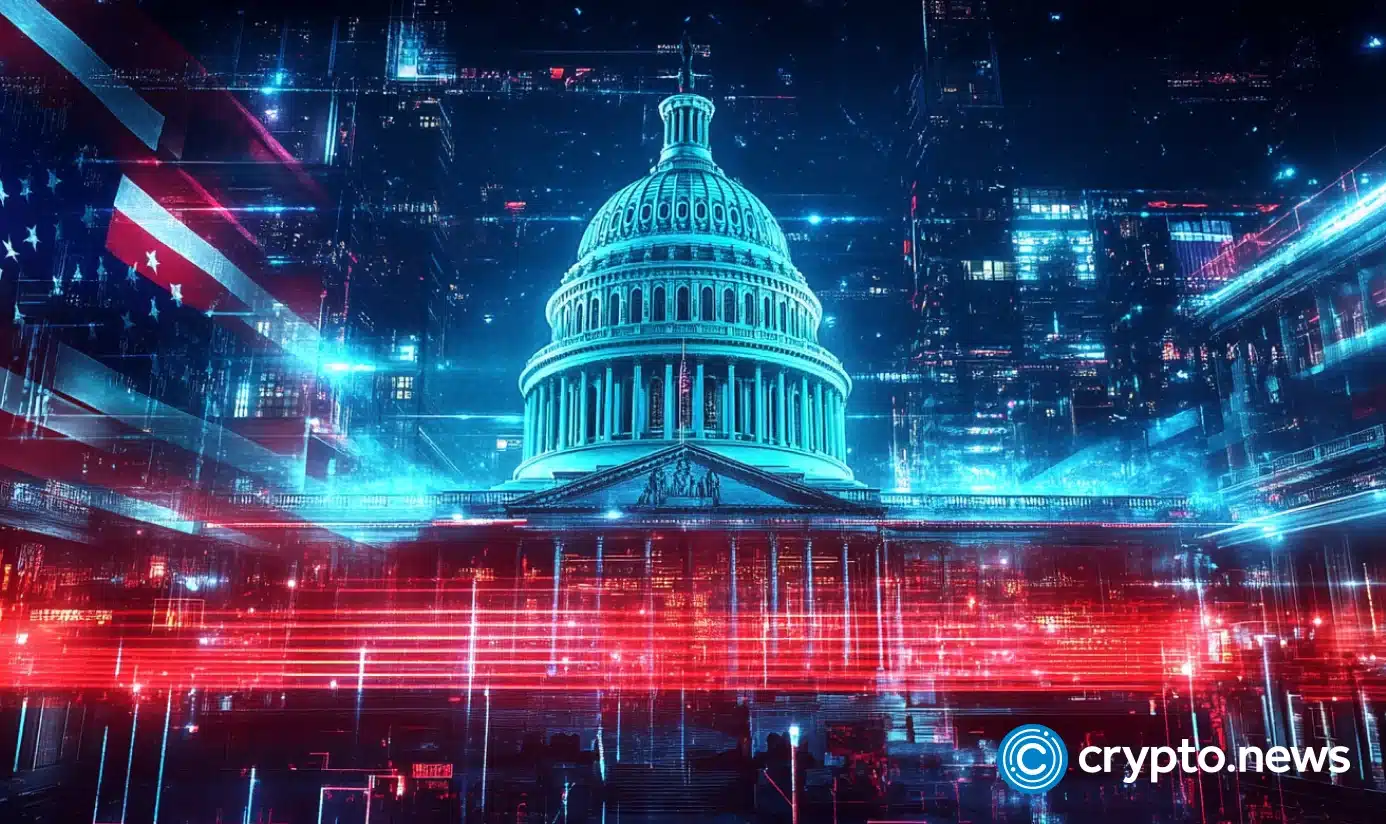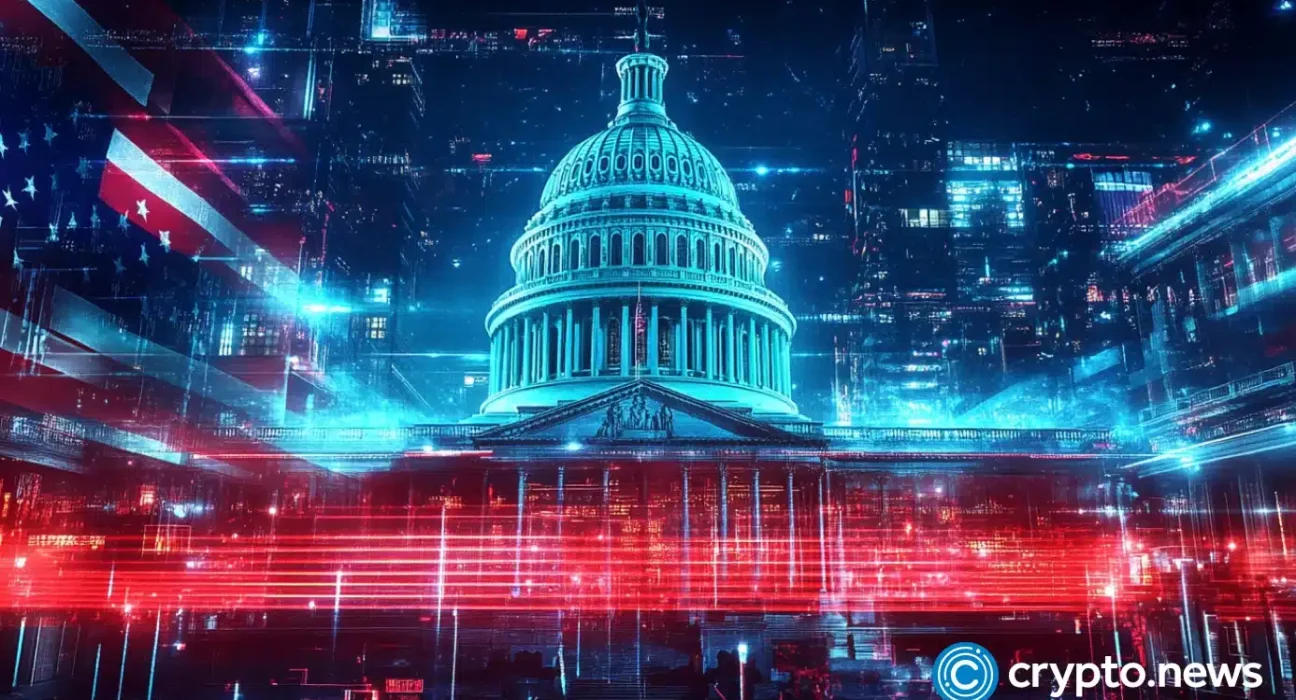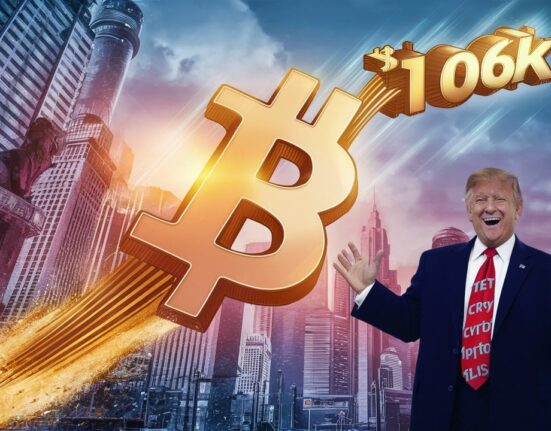[ad_1]


As Democrats and Republicans argue over DeFi, what message does Trump’s silence send to the crypto community? Is it a sign of disinterest or strategic neutrality?
DeFi gets the spotlight
On Sep. 10, the first-ever Congressional hearing on decentralized finance took place, marking an important moment in the evolution of this technology.
Titled “Decoding DeFi: Breaking Down the Future of Decentralized Finance,” the hearing was led by Congressman French Hill and lasted nearly two-and-a-half hours.
U.S. lawmakers gathered to discuss both the potential benefits and risks that DeFi could introduce to the financial system.
The hearing exposed a clear divide among lawmakers. Republicans, led by Hill, were optimistic about DeFi’s ability to remove intermediaries and transform financial markets.
As Hill stated, “by substituting intermediaries for autonomous, self-executing code, decentralized finance can shift the way financial markets and transactions are currently structured and governed.”
Meanwhile, Democratic lawmakers raised concerns, focusing on DeFi’s potential misuse, particularly its role in enabling criminal activity. While Republicans called for lighter regulations, Democrats advocated for stricter oversight, citing the risks of illicit use.
What does this hearing mean for the future of DeFi and the broader crypto market, especially with the U.S. presidential elections approaching?
A clash of perspectives on DeFi
The hearing itself turned into a battlefield of opinions, with sharp contrasts in how lawmakers viewed DeFi. The subcommittee chair, Hill, kicked off the discussion by focusing on the opportunities DeFi and tokenization could offer to finance.
However, not everyone saw it that way. Congressman Brad Sherman, a Democrat from California, took a more critical approach. He expressed concerns that DeFi might be nothing more than a tool for tax evasion, especially for the ultra-wealthy.
What we have here is an effort to liberate billionaires from income taxation… Every time a billionaire successfully cheats on his taxes, a member of the Freedom Caucus earns his wings.
In response to Sherman’s concerns, Peter Van Valkenburgh, director of research at Coin Center, provided a counter-argument. He acknowledged that tax evasion is a crime but pointed out that DeFi’s transparent, decentralized ledger makes it difficult for bad actors to hide their activities.
Tax evasion is a crime. It should be aggressively policed. I do not, however, think that tax evasion and its existence warrants a 100% surveilled and controlled financial system.
Van Valkenburgh also pointed out the confusion surrounding tax guidance from the IRS. He argued that many crypto users want to comply with tax laws but lack clear instructions on how to do so.
A difficult area in the cryptocurrency space has been getting clear tax guidance from the IRS on how Americans can pay their taxes when they earn capital gains, or perhaps their wages, on these networks
He added that criminals are more likely to use traditional financial systems to hide illicit funds rather than transparent blockchain networks.
On the other side, Mark Hays, Senior policy analyst at Americans for Financial Reform, painted DeFi in a less favorable light. He described the space as volatile and rife with scams, where investors often face devastating losses.
Hays stressed that DeFi should not get a free pass and that existing securities laws should apply to decentralized systems to protect investors.
Meanwhile, Amanda Tuminelli, the chief legal officer at DeFi Education Fund, took a different approach. She highlighted DeFi’s potential to democratize finance. According to Tuminelli, traditional financial systems rely on intermediaries, often acting as gatekeepers.
“Big banks can and do deny access to the system for discriminatory reasons or no reasons,” she stated, contrasting this with DeFi’s open-access nature. She suggested that anyone with an internet connection can use DeFi, calling it “the epitome of financial inclusion.”
Tuminelli argued that treating DeFi as traditional finance is not the right approach, as the underlying structures are fundamentally different. She suggested that regulations should take into account the self-custodial nature and transaction anonymity of decentralized systems.
Crypto left out of the presidential debate spotlight
Vice President Kamala Harris and former President Donald Trump faced off on Sep. 10 in the second presidential debate of the 2024 election. Despite Trump’s well-known pro-crypto stance, the debate avoided any mention of crypto entirely.
Instead, the focus was on traditional economic issues, with no reference to crypto, blockchain, or broader financial technology topics.
Harris’ strong performance during the debate appeared to unsettle Trump, particularly as he struggled to defend his position on contentious issues like abortion.
All of this seemed to affect the crypto market, as Bitcoin (BTC) dropped from around $58,000 to $56,000 after the debate. As of Sep. 11, it has slightly recovered, hovering around $56,800.
Ethereum (ETH), the second-largest crypto by market cap, also experienced a minor dip of about 0.5%, trading at around $2,340 during the same period.
In a surprise for Trump, who has long positioned himself as a champion of deregulated financial markets, his odds of winning, according to online betting platform Polymarket, fell from 52% before the debate to 50% as of this writing.
Meanwhile, a CNN flash poll reflected Harris’ dominance, with 63% of viewers stating she outperformed Trump. However, most respondents noted that the debate wouldn’t influence their vote in November.
As the campaign continues and the demand for a third debate grows, it remains to be seen whether crypto will finally take center stage.
What to expect next?
Throughout the Biden administration, Democrats have consistently been skeptical of crypto, highlighting the risks and pushing for stronger regulations. Amid this, Vice President Kamala Harris has remained silent on the issue, making her stance unclear.
Meanwhile, Trump, who once strongly opposed crypto, has shifted his tone in an effort to attract pro-crypto voters. In recent months, Trump has shown more openness toward blockchain and crypto on several instances.
However, like Harris, he has remained silent when it matters most, such as during the Trump vs. Musk Twitter space conversation in August and again during the second presidential debate, where crypto was notably absent.
The future of crypto and DeFi in the U.S. remains uncertain. With the upcoming election, how the next administration handles this growing sector could have a lasting impact on both innovation and regulation in the financial space.
[ad_2]
Source link








